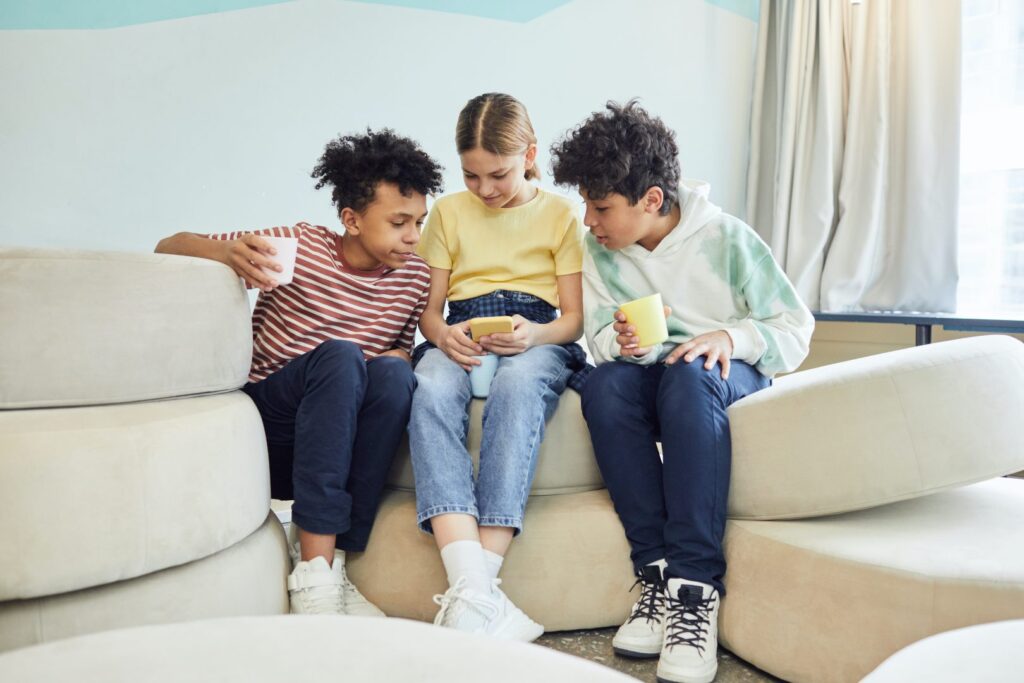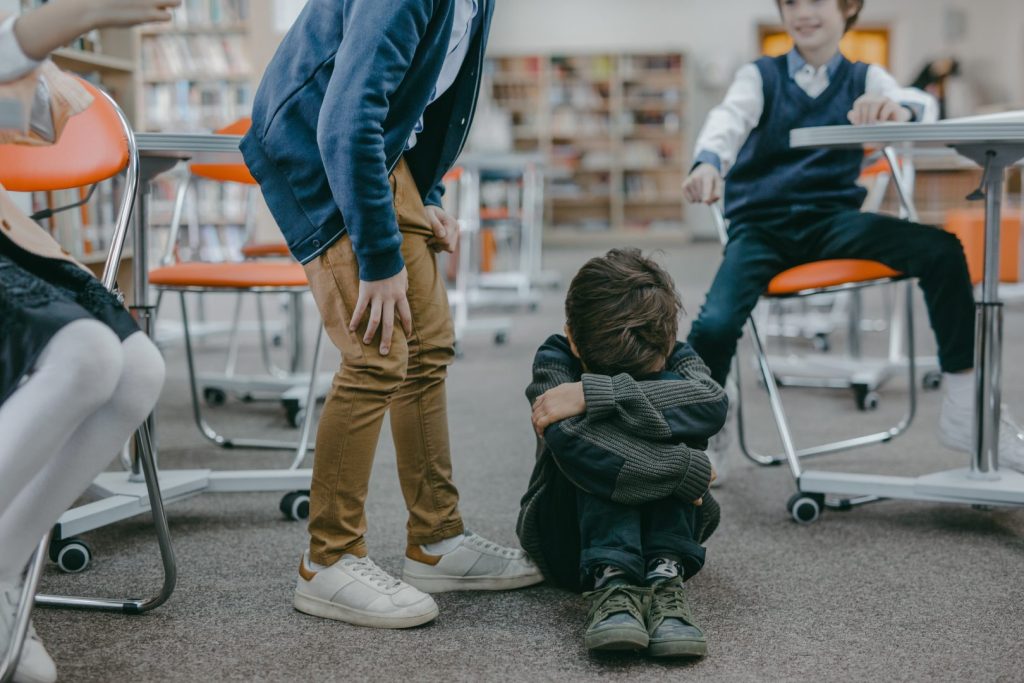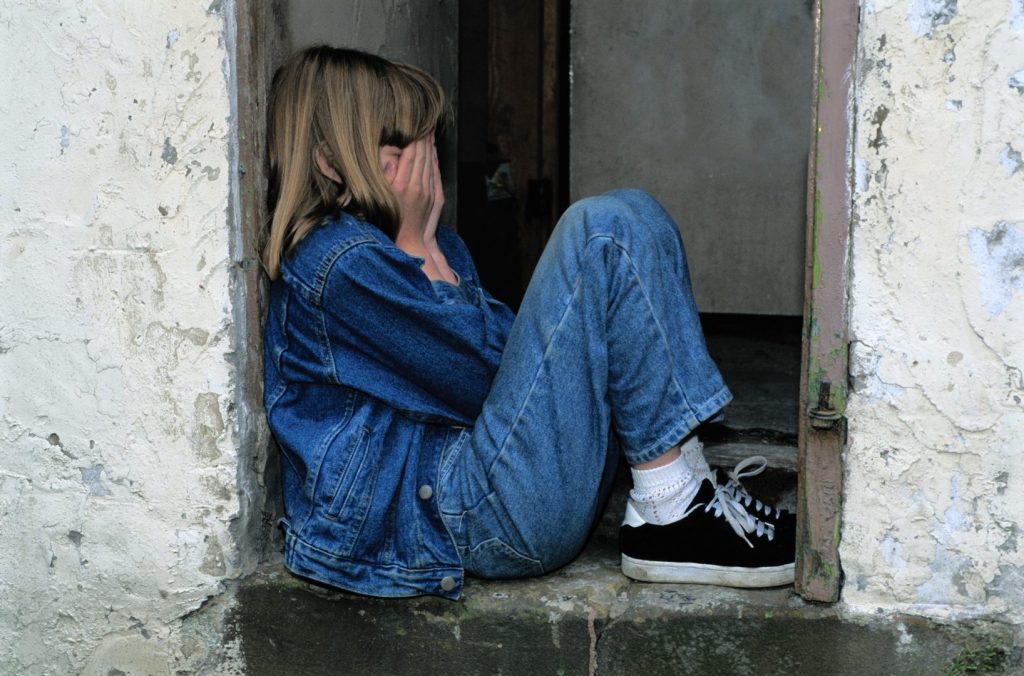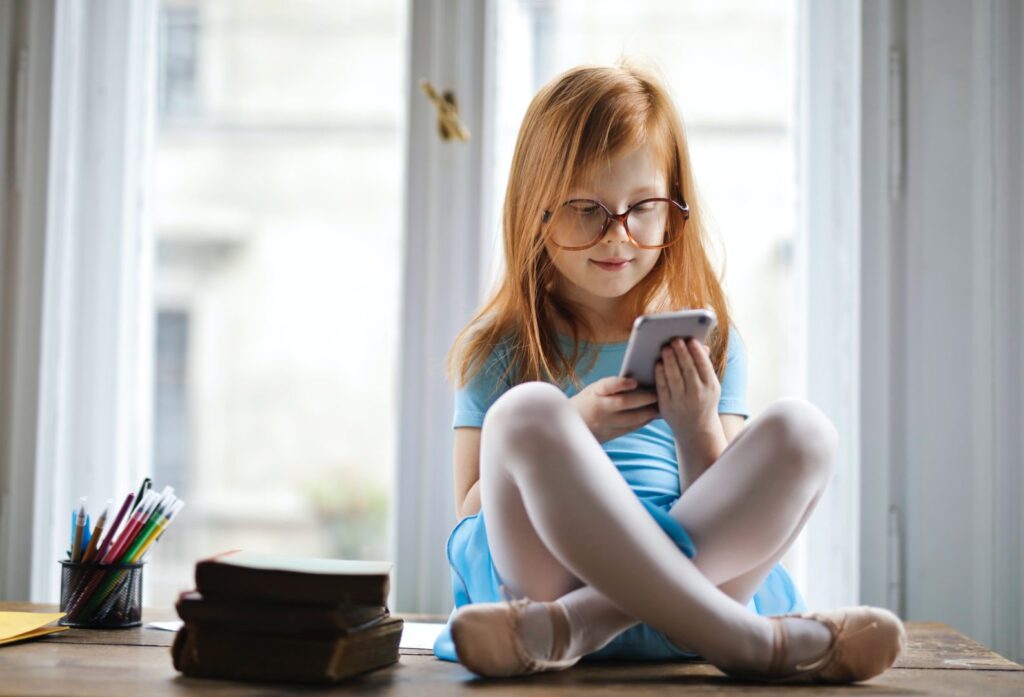Raising a child is the most precious parental role. Parents invest in children’s education, living standards, and even entertainment.
Parents are devoted and protect their children, but can’t always supervise them. Children go to school, have social and virtual connections, and get influenced by others.
No matter how children communicate (virtually or in person), they are tempted to imitate other behaviors. Online peer pressure is present in our children’s life whether we, parents or caregivers, like it or not.
What Is Online Peer Pressure
Online peer pressure is when your child is influenced by other children online and copies their behavior. If your children post, like, and comment on social media platforms for hours just to be recognized and accepted by their peers, they are developing “symptoms” of online peer pressure.

For example, your child can be influenced by their peers to take your car without your permission, drive it without a driving license, take a video, and post it on social media, just to be accepted and be cool. Or your kid can be pressured to post humiliating photos and videos online to impress a crush.
The Different Forms of Online Peer Pressure
Online peer pressure can come in any shape or form. There are a few different types of online peer pressure which we’ll cover in the following paragraphs.
· Explicit Peer Pressure
Explicit peer pressure is when someone directly tells your child to take part in some action. For example, a friend or relative keeps directly asking your child to go to a concert.
· Implicit Peer Pressure
Implicit peer pressure occurs when your child is the only one in the group not engaging in a specific activity. For example, everyone in your child’s class, except your child, will go to the park after class.
· Cyberbullying
Cyberbullying is probably the most dangerous form of peer pressure. Studies show that about 46% of all teens have been bullied online at least once.

· Social Media
Children often like to boast about what they have on social media. This can make your children feel pressured that they don’t have something that the others have.
Positive and Negative Online Peer Pressure
Online peer pressure can be divided into two categories. It can be positive and negative. Positive peer pressure is when others pressure your children to do positive activities like studying, volunteering, and such.
Negative peer pressure is more common for these generations and happens when others convince your child to skip school, not do homework, motivate them to be disrespectful, share explicit content online, and use drugs, alcohol, cigarettes, and gambling.
The Effects of Online Peer Pressure on Children
Pressured children manifest changes in their behavior and develop different personalities. In the following paragraphs, we’ll go over the effects of online peer pressure on children.
· Psychological Impact
Pressured kids have decreased self-confidence because of being controlled by others, increased stress, sleeping disorder, anxiety, depression, and sometimes sleeping disorder.
· Emotional Toll
Online peer pressure often causes emotional breakdowns and makes children feel sad, angry, and frustrated.

· Behavioral Changes
Pressured kids can get distant from family members and are usually isolated. They lose interest in school and have no vision for the future. They argue with their parents and constantly complain.
· Physical Health Consequences
Online peer pressure can also affect children’s physical health. They can either gain weight or become anorexic. Also, constantly being under pressure may harm children’s immune systems, and they might start hurting themselves.
Signs of Online Peer Pressure on Children
You know that something is bothering your children when they start behaving very differently from before. So, let’s discuss the signs of online peer pressure in children.
· Changes in Behaviour
Sudden changes in behavior, arguing with parents and siblings, wearing different clothes, having strange haircuts, sleeping and eating less, refusing to go to school, and avoiding family gatherings can all be signs of online peer pressure.
· Negative Emotions
Pressured children express their negative thoughts and feelings. They are frustrated, aggressive, violent, stressed, and depressed.
· Obsessive Use of Technology
Online peer pressure may make children excessively use tech to prove that they are present online and keep up with trends. This can lead to your children developing a screen addiction.

· Isolation
Everything begins with isolation. Pressured children want to hide from their parents because they might feel embarrassed of them.
Strategies to Help Children Cope with Online Peer Pressure
Online peer pressure is popular and can happen to every child. Have an open conversation about the topic and share personal experiences.
Set boundaries and rules about how your children should behave around others. Teach your kids to make rational decisions about their connections and build positive social relationships.
Steps to Take if Your Child is Experiencing Online Peer Pressure
Firstly, don’t blame your child. Instead, be rational and calm. Try to get as much information about how it began, what happened during the process, and the consequences.
Immediately inform the teacher and school management or report cyberbullying. Demand participation of school workers to solve the problem and protect your children.

If your children develop serious mental health issues caused by cyberbullying or constant pressure, ask for professional help and treatment.
Conclusion
Teach your children to a simple, ordinary life with family values and real friendships. Motivate them to be hardworking, study hard, and focus on their goals.
And don’t forget to tell your children that they’re beautiful just the way they are, and don’t need to change because someone said so.
FAQs
What are the Contributing Factors to Online Peer Pressure?
Contributing factors to online peer pressure are low self-esteem, low value of personal integrity, lack of confidence, and the intention to be accepted and fit in groups.
What Steps Can Parents Take if Their Child is Experiencing Online Peer Pressure?
Knowing that your child is experiencing online peer pressure is devastating but you need to be calm and talk about the situation. Don’t blame your child and inform teachers and school management about the problem. Ask for professional help and treatment if needed.
What is positive peer pressure for kids?
Positive peer pressure includes belonging to groups for learning and volunteering in the community, or any other positive friend groups. Positive peer pressure makes children feel like they belong, and it increases their self-confidence.







